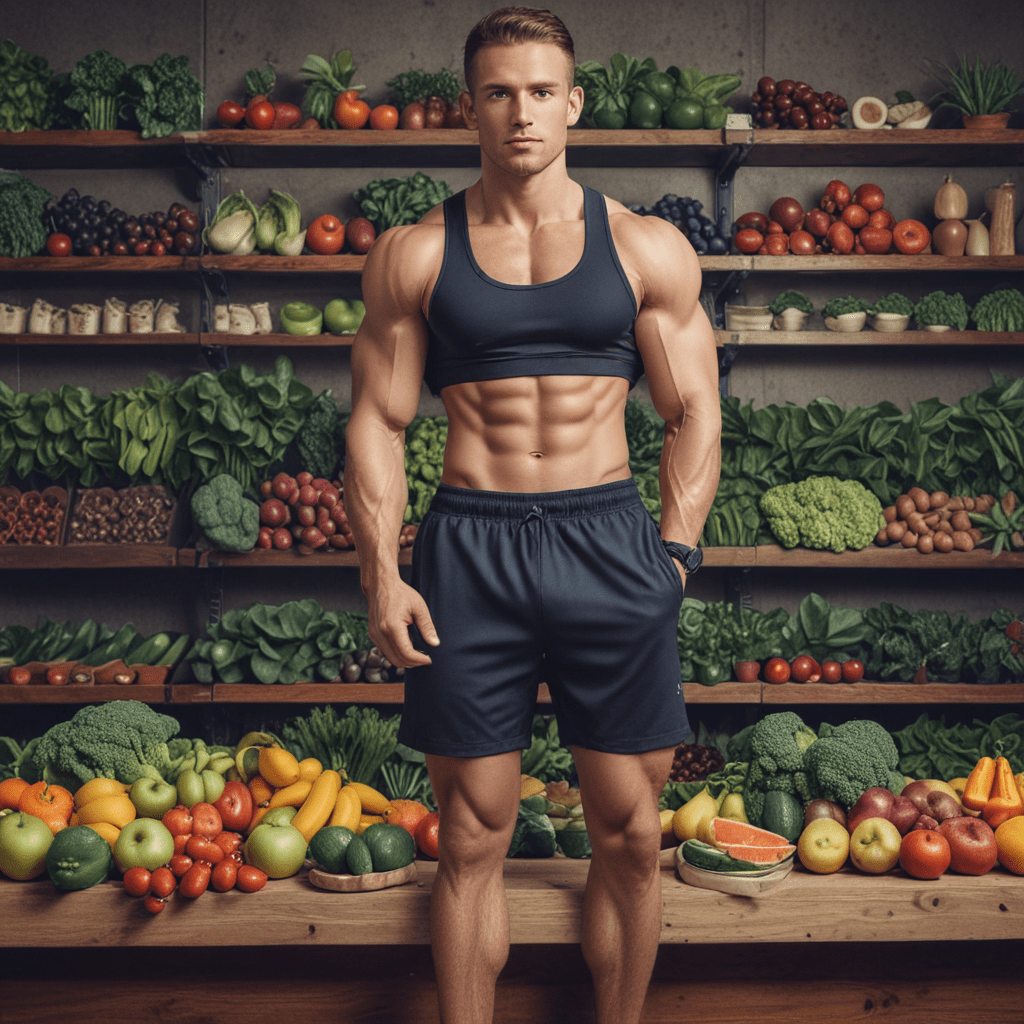
1. Introduction: The Basics of a Vegan Diet
Embarking on a vegan lifestyle entails adhering to a plant-based diet that excludes all animal products, including meat, dairy, eggs, and honey. This dietary approach has gained significant traction in recent years, driven by ethical, environmental, and health-related motivations. Veganism aligns with the principles of compassion towards animals, promotes environmental sustainability by reducing the carbon footprint associated with animal agriculture, and offers numerous health benefits, including a lower risk of chronic diseases such as heart disease, stroke, and certain types of cancer.
2. Nutritional Considerations for Vegan Athletes
Adopting a vegan diet requires careful planning to ensure adequate intake of essential nutrients. Protein, a crucial nutrient for muscle growth and repair, can be obtained from plant-based sources such as beans, lentils, tofu, tempeh, and quinoa. Iron, necessary for oxygen transport, is found in fortified cereals, leafy green vegetables, and legumes. Calcium, vital for bone health, can be sourced from fortified plant-based milk, leafy green vegetables, and tofu. Vitamin B12, primarily found in animal products, must be supplemented or obtained from fortified foods. By incorporating a variety of nutrient-rich plant-based foods into their diets, vegan athletes can meet their nutritional needs and optimize their performance.
3. Benefits of a Vegan Diet for Performance: Improved Recovery
A vegan diet can enhance post-workout recovery by reducing inflammation and promoting muscle repair. Plant-based foods are rich in antioxidants, which combat oxidative stress and reduce muscle damage caused by intense exercise. Additionally, vegan diets are typically higher in fiber, which supports a healthy digestive system and promotes regular bowel movements, crucial for optimal recovery. The anti-inflammatory properties of a vegan diet also contribute to faster recovery times, allowing athletes to return to training sooner.
4. Benefits of a Vegan Diet for Performance: Enhanced Endurance
Endurance athletes require sustained energy levels to perform at their peak. A vegan diet can provide the necessary fuel by supplying ample carbohydrates from whole grains, fruits, and vegetables. Plant-based foods are also rich in nitrates, which have been shown to improve blood flow and oxygen delivery to muscles, enhancing endurance performance. Furthermore, the high fiber content in vegan diets helps regulate blood sugar levels, providing a steady source of energy throughout prolonged exercise.
5. Benefits of a Vegan Diet for Performance: Increased Strength
Contrary to popular belief, a vegan diet can support muscle growth and strength development. Plant-based proteins, such as soy, pea, and hemp protein, provide essential amino acids for muscle building. Additionally, vegan diets are often higher in certain vitamins and minerals, such as potassium and magnesium, which play crucial roles in muscle function and recovery. By incorporating a variety of protein sources and nutrient-rich plant foods into their diets, vegan athletes can gain strength and power while adhering to their ethical and dietary choices.
6. Benefits of a Vegan Diet for Performance: Reduced Inflammation
Inflammation is a natural response to injury or stress, but chronic inflammation can hinder athletic performance and recovery. A vegan diet can reduce inflammation by providing a rich source of antioxidants and anti-inflammatory compounds. Fruits, vegetables, and whole grains contain phytonutrients that combat oxidative stress and protect cells from damage. Additionally, vegan diets are typically lower in saturated fat and processed foods, which can contribute to inflammation. By reducing inflammation, a vegan diet can improve overall health, boost recovery, and enhance athletic performance.
7. Benefits of a Vegan Diet for Performance: Improved Body Composition
Maintaining a healthy body composition is crucial for athletic performance. A vegan diet can support weight management and improve body composition by promoting satiety and reducing calorie intake. Plant-based foods are typically high in fiber and water, which fill you up and help you feel satisfied, reducing the likelihood of overeating. Additionally, vegan diets are often lower in processed foods and added sugars, which can contribute to weight gain. By incorporating nutrient-rich, plant-based foods into their diets, vegan athletes can achieve and maintain a healthy body weight that supports their athletic endeavors.
8. Practical Considerations for Vegan Athletes: Meal Planning
Meal planning is essential for vegan athletes to ensure adequate nutrition and performance optimization. It involves incorporating a variety of plant-based foods from all food groups to meet daily nutrient requirements. Planning meals ahead of time can save time and reduce the risk of making unhealthy choices when short on time. Vegan athletes should include a balance of protein, carbohydrates, healthy fats, vitamins, and minerals in each meal. Considering protein sources like beans, lentils, tofu, and quinoa, complex carbohydrates from whole grains and fruits, and healthy fats from nuts, seeds, and avocados is crucial. This comprehensive approach to meal planning ensures that vegan athletes fuel their bodies efficiently and support their training and recovery.
9. Practical Considerations for Vegan Athletes: Supplementation
While a well-planned vegan diet can provide most essential nutrients, certain supplements may be beneficial for vegan athletes. Vitamin B12, which is primarily found in animal products, is essential for nerve function and red blood cell production. Vegan athletes should supplement with vitamin B12 to avoid deficiency. Additionally, creatine, a natural substance that supports muscle energy production, can be beneficial for vegan athletes seeking to enhance strength and power. Iron supplementation may also be necessary for vegan athletes, especially female athletes who are prone to iron deficiency due to menstrual blood loss. Consulting with a registered dietitian or healthcare professional can help vegan athletes determine which supplements are appropriate for their individual needs.
10. Conclusion: Vegan Diet as a Catalyst for Athletic Success
A vegan diet, when thoughtfully planned and executed, can provide the necessary nutrients to support and enhance athletic performance. Its anti-inflammatory properties, ability to improve recovery, and contribution to healthy body composition make it a viable option for athletes seeking to optimize their training and competition outcomes. By embracing a plant-based lifestyle, vegan athletes can harness the power of nature to fuel their athletic aspirations while aligning with their ethical and environmental values. With careful meal planning and strategic supplementation, vegan athletes can unlock their full potential and achieve athletic success.
FAQs
Q: Is a vegan diet sufficient for athletes to build muscle and strength?
A: Yes, a well-planned vegan diet can provide adequate protein and other nutrients for muscle growth and strength development. Plant-based protein sources, such as soy, pea, and hemp protein, provide essential amino acids for muscle building.
Q: How can vegan athletes ensure they are getting enough iron?
A: Vegan athletes can increase their iron intake by consuming iron-rich plant foods such as fortified cereals, leafy green vegetables, and legumes. Additionally, vitamin C can enhance iron absorption, so including citrus fruits or vegetables in meals with iron-rich foods is recommended.
Q: Do vegan athletes need to supplement with creatine?
A: Creatine supplementation may be beneficial for vegan athletes seeking to enhance strength and power. Creatine is naturally found in animal products, so supplementation can help vegans optimize their creatine levels for improved muscle performance.

